Supplements help to ensure that the skin cells get the right nutrition throughout life
 If the skin is not nursed from the inside, it will eventually show on the outside, no matter how many expensive beauty products you use. On the other hand, health and beauty will shine through in spite of slightly weather-beaten cheeks and visible crow's feet. The question is how you would like to age? The advantage of nurturing your skin from the inside with all the right nutrients is that they also benefit your general health. In other words, you are not just doing your skin a favor - you are doing the right thing for your entire body.
If the skin is not nursed from the inside, it will eventually show on the outside, no matter how many expensive beauty products you use. On the other hand, health and beauty will shine through in spite of slightly weather-beaten cheeks and visible crow's feet. The question is how you would like to age? The advantage of nurturing your skin from the inside with all the right nutrients is that they also benefit your general health. In other words, you are not just doing your skin a favor - you are doing the right thing for your entire body.
The cosmetics industry has always been searching for "miracle ingredients" that give facial creams more than just a moisturizing effect. This is why things like Q10, zinc, vitamin A and other active compounds are added to expensive skin products. As a clever marketing trick, the industry ties all kinds of beauty claims to their "improved products".
What the consumers are blissfully unaware of is that it is a far better strategy to provide the skin with these active nutrients from the inside - carried directly to each skin cell with the bloodstream.
With supplements, these active ingredients are taken directly to the "production site" of new skin cells, offering optimal conditions for the production of viable and healthy skin cells. This is something a topical skincare product would never be able to.
Creams typically only affect the outer skin layer that consist of dead skin cells. Once skin cells have reached this layer, it is too late to affect them nutritionally. Supplements, on the other hand, ensure
that the skin cells get the right nutrition through every stage of their life cycle.
Zinc - the wound healer
Zinc is one of the important trace minerals in our diet. It is needed for about 300 enzyme functions and plays a major role in e.g. cell division and gene expression.
Zinc's important role in the immune system has been demonstrated in many studies. Also, zinc deficiency has been linked to depression.
Last but not least, zinc speeds up and improves our healing properties (especially lesions and wounds). Zinc's ability to help fight bacteria, viruses and fungus, contributes to our defence against infections of the skin. In fact, a zinc deficiency may lower the skin's resistance, leading to various skin diseases and even hair loss. The European Food Safety Authority (EFSA) officially recognizes zinc as a key mineral for skin, hair and nails.
Studies even suggest that zinc supplements may help combat acne, presumably because the nutrient both strengthens the skin and helps counteract the inflammatory processes involved in acne.
A particularly high zinc requirement is seen during puberty, in pregnant and lactating women, in elderly people, in individuals with heavy alcohol consumption, in connection with stress, in connection with the use of diuretics, and in people who sweat a lot.
The zinc requirement is 50 percent higher in vegetarians, since vegetarian diets contain very little
zinc.
As the body does not have an actual zinc reserve, we need a continuous supply of the mineral.
Zinc is mainly found in shellfish, fish, meat, seeds and nuts.
Youthful cells with selenium
Selenium is a trace element, which most of us get too little of from our diets. Selenium is an important part of the body's defense mechanism against aging of cells, among other things. Selenium is a powerful antioxidant with numerous rejuvenating properties. With too little selenium in our system, cells become easier targets for viruses, cancers, and premature aging.
There are large areas of Europe where agricultural crops contain very little selenium, simply because the soil is selenium deficient. This shortage is associated with many serious diseases that occur as a result of cellular ageing.
Selenium also helps maintain normal hair and normal nails. Lack of selenium, on the other hand,
contributes to skin diseases such as psoriasis, fungus and dandruff.
Selenium is primarily found in fish, organ meats, shellfish and seeds.
Suggested selenium intake (supplementation): 100-200 micrograms daily.
Does too little chromium make us age faster?
Science is becoming increasingly aware of the importance of chromium for a number of reasons, including the nutrient's influence on how fast we age. Lack of chromium may be far more widespread than previously thought and could even help explain the increasing rate for diabetes.
You may already know that sugar is bad news if you want to maintain youthful skin. Not only does sugar cause damage to your looks, it depletes your chromium reserves, triggering a vicious cycle of poor blood sugar control and reduced insulin sensitivity.
If the sugar you consume is not properly metabolized in the cells, the risk of diabetes and cardiovascular ailments is increased significantly.
Good chromium sources include dried fruits, seeds, and meat, but it can be very difficult to get the suggested 200 micrograms from the diet alone.
Suggested chromium intake (supplementation): 100-200 micrograms daily (as organic chromium yeast)
Skin energy with coenzyme Q10
 When browsing through the aisles of a beauty department, have you ever noticed all the skincare products with "Q10" on the label? Q10 is serious stuff and not just a marketing gimmick. All human cells need coenzyme Q10 to produce energy - even skin cells.
When browsing through the aisles of a beauty department, have you ever noticed all the skincare products with "Q10" on the label? Q10 is serious stuff and not just a marketing gimmick. All human cells need coenzyme Q10 to produce energy - even skin cells.
We actually produce our own Q10, but as we grow older our endogenous production goes down. Adding Q10 to anti-aging creams makes sense. However, the problem is that in order for Q10 to make a difference, it must reach the cells. The amount of Q10 that is able to penetrate the skin and enter the skin cells is negligible. If you want Q10 to make a difference, you have to ingest it in the form of food or supplements.
Like all other cells, skin cells slow down and malfunction when they lack Q10.
Increasing your intake of Q10, on the other hand, can improve their energy turnover, helping skin cells to stay youthful. Q10 is an important fat-soluble antioxidant that is active inside cells. Like vitamin C, Q10 is able to can repair and recycle vitamin E that has been damaged by free radicals.
Q10 is primarily found in meat, organ meat, fish, nuts, seeds and leafy greens.
Suggested Q10 intake (supplementation): 30-100 mg daily
Visible effects of vitamin C
When the body makes connective tissue (collagen) it uses different nutrients such as vitamin C. The
more vitamin C you get, the stronger and more elastic your skin becomes. Ironically, vitamin C is
chemically related to sugar, but where sugar damages the skin's collagen and ages it, vitamin C
benefits the skin.
Healthy connective tissue is important for avoiding problems like cellulite tissue (also known as the "orange peel" or "cottage cheese" skin effect).
Both sugar (glucose), and vitamin C are dependent on the hormone insulin in order to enter the cells. Elevated blood glucose levels actually inhibit vitamin C's ability to enter the cells. Just like chromium, vitamin C reduces sugar cravings and counteracts tiredness and fatigue, even influencing our looks.
Vitamin C is a powerful water-soluble antioxidant that captures and neutralizes free radicals in the fluid-filled tissue spaces. Vitamin C also supports vitamin E (another known 'skin vitamin'), so if you want to postpone the aging process as long as possible, it is essential that the cells have adequate amounts of both vitamin E and vitamin C.
Since the body is not able to store water-soluble vitamin C, you must consume it regularly in order to keep the cells supplied with this important nutrient.
Vitamin C is primarily found in fresh fruit and vegetables, with rose hips, parsley, and
red peppers being particularly good sources. Our ancestors are thought to have consumed around 400 mg of vitamin C daily just by eating wild plants and fruits.
Is Pycnogenol an elixir of youth?
Pycnogenol can protect the skin's collagen from free radicals, thereby counteracting the inflammatory processes which many dermatologists believe is responsible for skin and body aging.
Pycnogenol is not really a nutrient but an extract made from the bark of French maritime pine (Pinus pinaster), which contains some biologically active substances called procyanidins and flavonids. Pycnogenol has powerful antioxidant properties. Procyanidins are mostly active in the bloodstream, whereas the flavonoids, which are smaller molecules, are able to enter the cells.
Scientific studies have shown that
- Pycnogenol binds to the two skin proteins, collagen and elastin, and protect them from
free radicals damage. This reduces wrinkles and helps inhibit the inflammatory processes which
many dermatologists believe are responsible for skin and body aging
- Pycnogenol boosts blood circulation. For instance, it is a great
remedy if you are going on a prolonged journey by airplane or car where you are at increased
risk for so-called DVT (Deep Vein Thrombosis) because of sitting still for long periods of time
- Pycnogenol improves blood circulation in the minute blood vessels of the skin, resulting
in an increased delivery of oxygen and nutrients which improves skin hydration and wound
healing
Pycnogenol is able to protect vitamin E from oxidation. Pycnogenol can also repair vitamin C that has been damaged by free radicals. Instead of being broken down in the body, these vitamins are effectively recycled
Water and a varied diet
Your skin, hair and nails need many nutrients if you want to look fresh and maintain the right "glow". A varied diet with plenty of vegetables and greens, wholegrain and other nutrient-rich foods is always advisable. Also, make sure to get enough clean water every day along with healthy fats, as the skin is often the last organ to claim its share of vital fats and moisture. The amount of water needed depends on your lifestyle, but 4-6 large glasses of water a day is normally enough.
Lots of fresh air and sunlight in moderation also help to keep us young, physically and mentally
The sun is known to cause wrinkles, but this normally only happens with exaggerated sunbathing. A few, barely detectable wrinkles may even be a good trade-in for all the health benefits that are associated with sunshine. You can safely supplement with vitamin D during those months where you are not likely to get much sunlight.
 It is only natural to expect a nutritional supplement to be absorbed and deliver an effect. However, for this to happen, you must look for products with documentation. Countless multivitamin products and supplements with Q10, selenium, chromium, magnesium, and iron have very poor quality and are not properly absorbed. Our ageing process alone impairs the uptake of vitamins and minerals, and the same is the case if we lack essential fats, have too high calcium levels, or use antacids and other types of medicine – so this also needs to be taken into account.
It is only natural to expect a nutritional supplement to be absorbed and deliver an effect. However, for this to happen, you must look for products with documentation. Countless multivitamin products and supplements with Q10, selenium, chromium, magnesium, and iron have very poor quality and are not properly absorbed. Our ageing process alone impairs the uptake of vitamins and minerals, and the same is the case if we lack essential fats, have too high calcium levels, or use antacids and other types of medicine – so this also needs to be taken into account.







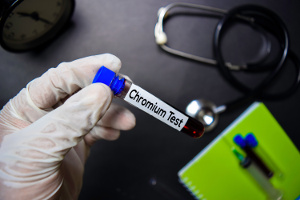
 A cold beer with lunch or a glass of red wine to go with your steak may be tempting. In fact, alcohol in limited amounts can be relaxing and it provides beneficial antioxidants. However, Danes drink too much, and our excessive alcohol consumption is one of the worst threats to public health. Many alcoholics suffer from unstable blood sugar levels, which can have a rather bad impact on their willpower. In addition, the empty calories deplete the body’s levels of vitamins, minerals, and essential fatty acids, on which the nervous system, the brain, and the liver depend. This can easily turn into a vicious cycle. Therefore, having stable blood sugar and making sure to get plenty of vital nutrients is important for preventing and treating alcohol abuse.
A cold beer with lunch or a glass of red wine to go with your steak may be tempting. In fact, alcohol in limited amounts can be relaxing and it provides beneficial antioxidants. However, Danes drink too much, and our excessive alcohol consumption is one of the worst threats to public health. Many alcoholics suffer from unstable blood sugar levels, which can have a rather bad impact on their willpower. In addition, the empty calories deplete the body’s levels of vitamins, minerals, and essential fatty acids, on which the nervous system, the brain, and the liver depend. This can easily turn into a vicious cycle. Therefore, having stable blood sugar and making sure to get plenty of vital nutrients is important for preventing and treating alcohol abuse. If the skin is not nursed from the inside, it will eventually show on the outside, no matter how many expensive beauty products you use. On the other hand, health and beauty will shine through in spite of slightly weather-beaten cheeks and visible crow's feet. The question is how you would like to age? The advantage of nurturing your skin from the inside with all the right nutrients is that they also benefit your general health. In other words, you are not just doing your skin a favor - you are doing the right thing for your entire body.
If the skin is not nursed from the inside, it will eventually show on the outside, no matter how many expensive beauty products you use. On the other hand, health and beauty will shine through in spite of slightly weather-beaten cheeks and visible crow's feet. The question is how you would like to age? The advantage of nurturing your skin from the inside with all the right nutrients is that they also benefit your general health. In other words, you are not just doing your skin a favor - you are doing the right thing for your entire body. When browsing through the aisles of a beauty department, have you ever noticed all the skincare products with "Q10" on the label? Q10 is serious stuff and not just a marketing gimmick. All human cells need coenzyme Q10 to produce energy - even skin cells.
When browsing through the aisles of a beauty department, have you ever noticed all the skincare products with "Q10" on the label? Q10 is serious stuff and not just a marketing gimmick. All human cells need coenzyme Q10 to produce energy - even skin cells.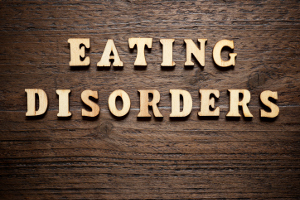 The rate of eating disturbances among children, teenagers, and adults has increased in the past year. Health authorities typically focus on cultural and psychosocial causes and therapies, but the treatments often drag out and are inadequate. What is equally important is to look at whether the patients lack essential nutrients that are important for the brain, the nervous system, the appetite, and the sense of smell and taste. Clinical research from the past decades has shown that anorexia and bulimia in particular can often be treated with zinc and various other nutrients, while chromium is important for maintaining stable blood sugar. The use of the right supplements combined with different therapy forms may therefore be the right way to obtain permanent results.
The rate of eating disturbances among children, teenagers, and adults has increased in the past year. Health authorities typically focus on cultural and psychosocial causes and therapies, but the treatments often drag out and are inadequate. What is equally important is to look at whether the patients lack essential nutrients that are important for the brain, the nervous system, the appetite, and the sense of smell and taste. Clinical research from the past decades has shown that anorexia and bulimia in particular can often be treated with zinc and various other nutrients, while chromium is important for maintaining stable blood sugar. The use of the right supplements combined with different therapy forms may therefore be the right way to obtain permanent results.
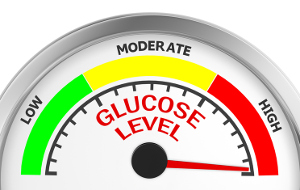 Type 2 diabetes is spreading like a bushfire and even more people suffer from something called metabolic syndrome, a prediabetic stage characterized by insulin resistance, hypertension, elevated cholesterol, and apple-shaped figure caused by a blood sugar imbalance.
Type 2 diabetes is spreading like a bushfire and even more people suffer from something called metabolic syndrome, a prediabetic stage characterized by insulin resistance, hypertension, elevated cholesterol, and apple-shaped figure caused by a blood sugar imbalance. 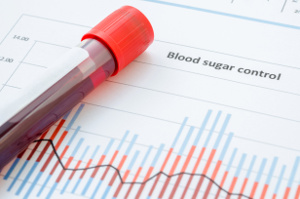
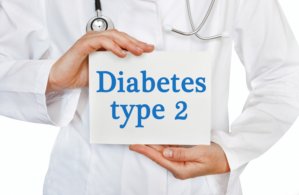 Type 2 diabetes is a global health problem, which is associated with cardiovascular disease, eye disorders, kidney disease, and amputations. Many people unwittingly have an early stage of diabetes called metabolic syndrome. This condition is characterized by insulin resistance, where the cellular uptake of glucose is impaired. This causes insatiety, and you risk eating too many sweets and other quick carbohydrates, which the body is unable to burn and therefore stores ad fat, instead. Many people who struggle with their weight also have insulin resistance and unstable blood sugar that affect their strength of will in terms of food choices and increase their risk of type 2 diabetes. A new meta-analysis has shown that
Type 2 diabetes is a global health problem, which is associated with cardiovascular disease, eye disorders, kidney disease, and amputations. Many people unwittingly have an early stage of diabetes called metabolic syndrome. This condition is characterized by insulin resistance, where the cellular uptake of glucose is impaired. This causes insatiety, and you risk eating too many sweets and other quick carbohydrates, which the body is unable to burn and therefore stores ad fat, instead. Many people who struggle with their weight also have insulin resistance and unstable blood sugar that affect their strength of will in terms of food choices and increase their risk of type 2 diabetes. A new meta-analysis has shown that  Do you feel an insatiable desire for sweets all the time? Do you find yourself snacking in between meals? A simple think like a daily chromium supplement may resolve your problem and even help you lose weight.
Do you feel an insatiable desire for sweets all the time? Do you find yourself snacking in between meals? A simple think like a daily chromium supplement may resolve your problem and even help you lose weight. e-2 diabetic, you may find that taking a daily supplement of organic chromium yeast can help you cope with your condition.
e-2 diabetic, you may find that taking a daily supplement of organic chromium yeast can help you cope with your condition.
 Each Dane consumes 12.3 kilos of candy on average every single year, which makes Denmark the single largest candy eaters worldwide, according to Euromonitor that has studied candy consumption in 100 different countries. This rather unhealthy champion status has a number of grave health consequences, as it affects our blood sugar levels, energy levels, and ability to concentrate. In the long run, it may lead to dependence on these quick “energy fixes” and contribute to problems with the immune system, insulin resistance, overweight, diabetes, digestive disorders and other lifestyle diseases. To make things worse, there is all the concealed sugar that we get from our diet. A new science project aims at developing methods for helping families improve their daily health. In the following, you can read more about the dangers of consuming too much sugar and what you can do to stabilize your blood sugar by distributing your energy intake and taking a supplement of the trace element chromium.
Each Dane consumes 12.3 kilos of candy on average every single year, which makes Denmark the single largest candy eaters worldwide, according to Euromonitor that has studied candy consumption in 100 different countries. This rather unhealthy champion status has a number of grave health consequences, as it affects our blood sugar levels, energy levels, and ability to concentrate. In the long run, it may lead to dependence on these quick “energy fixes” and contribute to problems with the immune system, insulin resistance, overweight, diabetes, digestive disorders and other lifestyle diseases. To make things worse, there is all the concealed sugar that we get from our diet. A new science project aims at developing methods for helping families improve their daily health. In the following, you can read more about the dangers of consuming too much sugar and what you can do to stabilize your blood sugar by distributing your energy intake and taking a supplement of the trace element chromium.
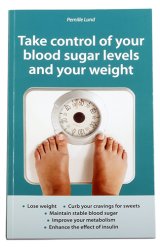
 Diabetes is spreading with epidemic proportions, and an alarmingly high number of people are affected by metabolic syndrome, an early stage of diabetes that causes insulin resistance, elevated cholesterol, hypertension, and enlarged waist circumference. Ever since the 1970s, diabetics have been advised to stick with a low-fat diet consisting of bread, potatoes, and other carbohydrate sources. However, a new Danish study reveals that it is best to cut back on your carbohydrate intake. The new message to diabetics supports research from other parts of the world. Diabetics and people with sensitive blood sugar should focus on eating a diet with fewer carbohydrates, more protein, and more healthy fats. They should also make sure to get enough chromium, vitamin D, and magnesium, all of which are nutrients that support the body’s blood sugar levels. Furthermore, vitamin B12 and Q10 are important for those, who take diabetes medication and cholesterol-lowering drugs (statins).
Diabetes is spreading with epidemic proportions, and an alarmingly high number of people are affected by metabolic syndrome, an early stage of diabetes that causes insulin resistance, elevated cholesterol, hypertension, and enlarged waist circumference. Ever since the 1970s, diabetics have been advised to stick with a low-fat diet consisting of bread, potatoes, and other carbohydrate sources. However, a new Danish study reveals that it is best to cut back on your carbohydrate intake. The new message to diabetics supports research from other parts of the world. Diabetics and people with sensitive blood sugar should focus on eating a diet with fewer carbohydrates, more protein, and more healthy fats. They should also make sure to get enough chromium, vitamin D, and magnesium, all of which are nutrients that support the body’s blood sugar levels. Furthermore, vitamin B12 and Q10 are important for those, who take diabetes medication and cholesterol-lowering drugs (statins). urge to eat sweets and to snack in between meals," says Ana Ferreira, who has been helped tremendously by her daily chromium supplement that was recommended by her friend, who is a doctor.
urge to eat sweets and to snack in between meals," says Ana Ferreira, who has been helped tremendously by her daily chromium supplement that was recommended by her friend, who is a doctor. PCOS – or polycystic ovary syndrome – is a problem that occurs in 5-10 percent of women of childbearing age. It is the most common cause of involuntary infertility. Related symptoms include tiredness, hirsutism (male hair growth), acne, and irregular menstrual periods. PCOS is often linked to instable blood sugar, increased risk of insulin resistance, overweight, cardiovascular disease, type 2 diabetes, and autoimmune diseases like Hashimoto’s thyroiditis that causes slow metabolism. Diet and exercise mean a lot in terms of prevention and treatment. The same is the case with different vitamins and minerals. We will be looking closer at B vitamins, vitamin D, vitamin E, and coenzyme Q10, plus magnesium, zinc, selenium, chromium, iodine, and fish oil. We will also be looking at how relevant supplements, according to science, can help control blood sugar levels and the hormone balance.
PCOS – or polycystic ovary syndrome – is a problem that occurs in 5-10 percent of women of childbearing age. It is the most common cause of involuntary infertility. Related symptoms include tiredness, hirsutism (male hair growth), acne, and irregular menstrual periods. PCOS is often linked to instable blood sugar, increased risk of insulin resistance, overweight, cardiovascular disease, type 2 diabetes, and autoimmune diseases like Hashimoto’s thyroiditis that causes slow metabolism. Diet and exercise mean a lot in terms of prevention and treatment. The same is the case with different vitamins and minerals. We will be looking closer at B vitamins, vitamin D, vitamin E, and coenzyme Q10, plus magnesium, zinc, selenium, chromium, iodine, and fish oil. We will also be looking at how relevant supplements, according to science, can help control blood sugar levels and the hormone balance. "After about one week of taking the Q10 supplement I could feel a huge difference," says 23-year old Alan Piccini, who has been suffering from extreme fatigue and muscle aches ever since he was a child.
"After about one week of taking the Q10 supplement I could feel a huge difference," says 23-year old Alan Piccini, who has been suffering from extreme fatigue and muscle aches ever since he was a child. “Taking capsules with co-enzyme Q10 has freed me of the severe side effects of my cholesterol lowering medicine,” Mrs Franken explains.
“Taking capsules with co-enzyme Q10 has freed me of the severe side effects of my cholesterol lowering medicine,” Mrs Franken explains.